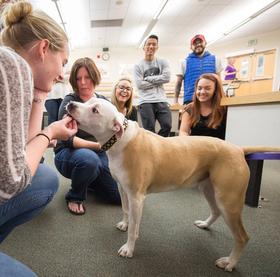Welding continues to provide steady career opportunities, which range from creative endeavors to logistical practices. For many community colleges, studying welding can open lucrative doors for lifelong employment. According to Syndicate Pay Scale Data, professional welders begin their careers with an average starting salary ranging from $54,000 to $71,000 per year. Best of all, the annual pay increases exponentially with years of experience, which means technical welders with 20 or more years of experience can earn an average of $100,000 annually.
Welding commonly involves using heat and technology to join various metal parts; building on this core focus, some aspects of a welding career can include the use of equipment to create welds and the inspection of welds to ensure specifications and standards are met. Additional tasks may involve reading blueprints, drawings, or other visual or written instruction forms.
Through diverse training and degree options at community colleges across the country, students can begin to prepare for their career through an Associate of Applied Science of Welding degree or a Welding Technology Certification.
The Employment Prospects for Technical Welders
Professional welders most commonly work in the manufacturing industries. Often hired to create industrial machinery, transportation vehicles, and other forms of fabricated products and pieces of equipment, trained and licensed welders can take advantage of a wide variety of employment venues.
In fact, adding to the manufacturing options, many welders also work in construction-related areas, joining pipes, building or maintaining refineries, as well as supporting the construction of bridges and other major facilities.
Best of all, experts predict that the job prospects for skilled welders will grow as quickly as other competitive career fields; technological innovations continue to change the demands for skilled labor, and therefore, welders with expert training and experience are expected to be the most preferred workers in the field.
Hutchinson Community College (HCC)
Hutchinson Community College has an extensive welding technology curriculum devoted to teaching students the intellectual and physical skills needed for a successful career. Enrolling in either the Associates of Applied Science or the Technical Welding Certification program teaches students the essential and competitive skills to effectively prepare graduates for employment. Exposed to state-of-the-art computer-aided machinery, students are guided by expert instructors and an advisory board of industry professionals to ensure that the instruction is continually challenging and up to pace with the ever-evolving industry.
Students enrolled in the certification program must complete 32 credits of welding courses, while students pursuing their AAS degree must complete 64 credits of welding. Through courses such as “Welding Theory,” “Blue-Print Reading,” “Work Ethics,” and an array of additional classes, HCC leaders ensure that “Students apply principles of math, metallurgy and electricity to manufacturing processes.”
Austin Community College (ACC)
Students attending Austin Community College in Texas can also pursue a rewarding career in welding through the college’s unique training programs.
With certification and degree programs in the field of technical welding, ACC students interested in pursuing a more artistic approach to metalwork can opt to enroll in various “Arts Metals” classes. One of the celebrated professors in ACC’s Arts Metals curriculum is William Bastas, who teaches students about the history and preservation of traditional blacksmith work. Additionally, “Bastas specializes in functional art, with pieces that include wall brackets, fireplace screens, gates, furniture, and railing.”
Nationally respected for adhering to the traditional efforts of metalwork, Bastas is one of only six welders in the country to forge his own custom hammers and tools. Further revealing his unique experience and instructional methods, "Bastas starts each semester by creating a design for students to create in their class. It features the techniques they will learn and […] results in a completed artwork.” With over 17 years of teaching experience, Bastas’ metal working opportunities add depth to the already diverse field of welding.
Whether you are interested in the technical or artistic elements of welding, many educational opportunities await you at your local community college. As another rewarding career that does not need a four-year degree, welding is an intriguing profession with bright opportunities.
Questions? Contact us on Facebook. @communitycollegereview















